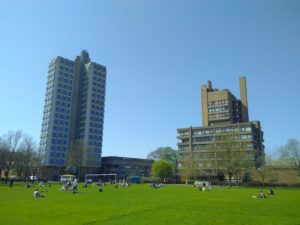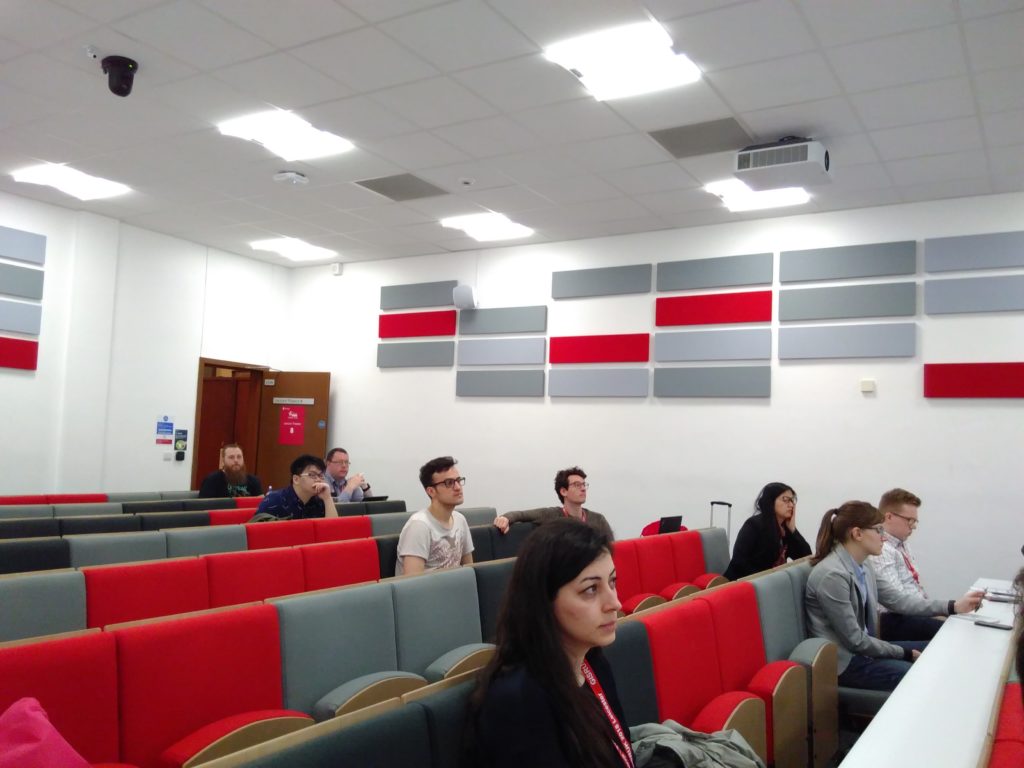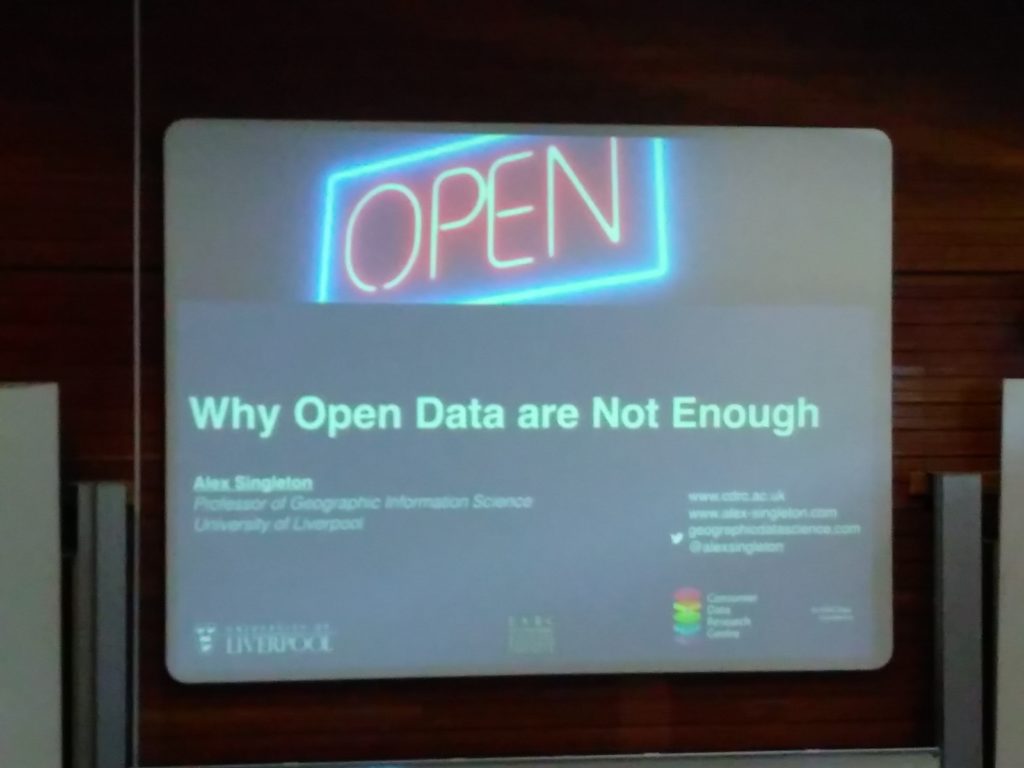Last week I attended an amazingly sunny GISRUK (Geographic Information Science Research UK) conference in Leicester. I have fond memories of Leicester, as I completed my BSc Geography (2003-2006) and MSc GIS (2007 – 2008) there. Much of the university and city has changed, but an amazing amount is still the same – both in the Bennett building lecture theatres and certain well frequented take-aways!
University of Leicester – Attenborough Tower (L) and Charles Wilson Building (R)
I coordinated the Early Career workshops, where those early in their GIS careers (including, but not limited to, PhD and MSc students) came together for two half-day sessions to find out more about GIS as a career in academia and industry, to learn more and compare notes about their respective PhD/MSc experiences, and most importantly, to get to know each other before the main conference! We had a great variety of input from James Norris (Ordnance Survey / Group on Earth Observations / AGI), James Kendall (RGS), Dave Unwin (ex University of Leicester & Birkbeck), May Yuan (Editor-in-Cheif IJGIS, University of Texas at Dallas), Addy Popy (ESRI UK) and Katie Hall (ESRI UK).
Early Careers session in full flow
The main conference had a great selection of talks and presentations covering every application of GIS from archaeology, to crime, health, transport, and urban studies! It is always a challenge to work out which of the three parallel sessions to attend, and I can’t attend everything. Particularly of note for me was Alex Singleton’s keynote on ‘Why Open Data are Not Enough’, discussing some of the issues with open spatial data, particularly in terms of data longevity which very much reminds me of this XKCD comic, and still really hasn’t been solved for spatial data. This was rather well illustrated by the CDRC Data Store that has been developed through the Consumer Data Research Centre; there is no mechanism for ensuring this continues after the CDRC funding finishes, and this is the norm with many academic projects.
Alex Singleton: Why Open data are Not Enough
There was also a great presentation by Sam Cockings looking at how we can better model day time populations, from a variety of data sources. Integrating many real time data sources is going to be a key aspect of spatial data management in the future and I can see many projects using the skills and technologies Sam described.
Next year GISRUK 2019 will be in Newcastle University, and I look forward to seeing you there!
If you would like a chat about GIS Research, or GIS Training for small groups, please do email nick@geospatialtrainingsolutions.co.uk or give me a call on 01209 808910.
Cross-posted at http://www.geospatialtrainingsolutions.co.uk/gisruk-2018-a-return-to-leicester/.


Pingback: GISRUK 2018: A Return to Leicester – Geospatial Training Solutions
Pingback: GISRUK 2018: A Return to Leicester - Geospatial Training Solutions